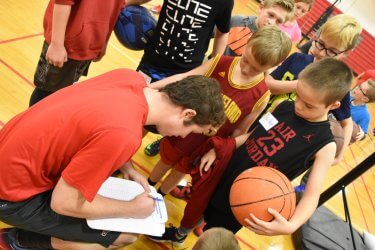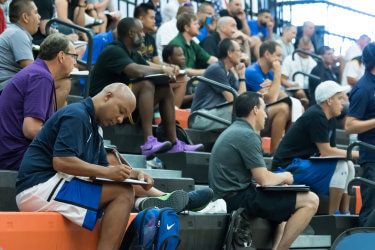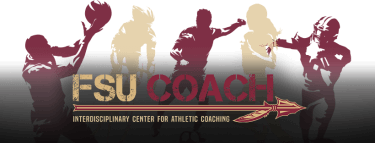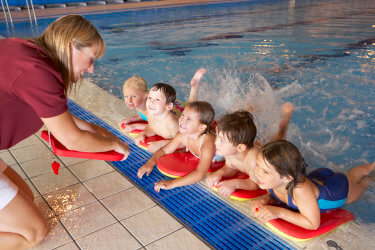(2 Minute Read)
Coaching education programs at the collegiate level are on the rise. Exact numbers are unknown, but we can estimate that there are approximately 150 undergraduate or graduate certificates, minors, or degrees that provide some form of coach training.

Why is coach education and development at the college level so important? One primary reason is to dispel myths about coaching. In the animated movie Ratatouille, which I might have seen one too many times, chef Auguste Gusteau is adamant that “anyone can cook.” Unfortunately, the same belief might exist in the coaching profession, with many thinking that it requires little training or expertise to coach. Simply watching coaches or experiences as an athlete might lead some to suggest that they now possess the many skills required to be ethical and effective as a coach. Such logic would suggest I have the skills to be a dentist: I have watched dentists and I have been a dentist’s patient. Therefore, I am now good enough to be a dentist. Trust me, you do not want me as your dentist!

When we consider how illogical my dentist argument is, we begin to recognize how unreasonable it is to allow individuals to coach without any formal training. The vast majority of athletic coaches in the United States, from the recreational to professional levels, lack any formal education in coaching. For example, according to the National Council for Accreditation of Coaching Education (2011), only 5-10% of youth coaches have received any formal training. Therefore, coach education training can be extremely valuable, particularly within rigorous academic settings that include best practices and the latest knowledge.

Another reason why coach education programs are important at the collegiate level is to provide new research and multisport perspectives. Often sport-specific training does not consider how learning can be acquired from other sports and disciplines, which a generic coaching education program can do. Though Griffo and colleagues (2019) reported that the number of coaching-related journal articles has risen over the past decade, most (43%) focused on sport psychology and only 2% considered disability sports. Therefore, coach education programs with the potential for interdisciplinary research approaches have an enormous opportunity to expand our knowledge of the coaching profession across many different areas.

We are developing something new at Florida State University to help address these needs. FSU COACH is unique in that it operates independently of academic departments and yet works with them to supply the knowledge and expertise a coach must know and apply. It has the mission to prepare and equip the next generation of athletic coaches and sports professionals with evidence-based education and research that maximizes coaching excellence. More specifically, faculty: (1) administer a new online graduate certificate in Athletic Coaching with plans to expand graduate programming soon, (2) conduct research, (3) offer coach development to the community at large, and (4) help sport organizations through larger-scale training and support.

To summarize, can I work on teeth? Yes. Can I do it well? Not a chance. Therefore, ask the same question whether anyone can coach. Yes. Can anyone coach well? The same logic would say most likely not without proper training and support. Therefore, we must provide the resources necessary to meet the needs of all aspiring coaches, whether those that seek academic credentials to pursue a career in coaching or those moms and dads who just need help to create a safe and fun environment for their child’s team. FSU COACH is working toward this goal using an innovative academic model in the profession. Those interested in learning more can subscribe to our monthly newsletter for updates and best practice for coaches or contact me directly.
References
Griffo, J., Jensen, M., Anthony, C., Baghurst, T., & Kulinna, P. (2019). A decade of research literature in sports coaching (2005-2015). International Journal of Sports Science & Coaching, 14(2), 205-215. doi: 10.1177/1747954118825058
National Council for Accreditation of Coaching Education. (2011). Coaching counts! Case statement. Retrieved from https://www.shapeamerica.org//publications/resources/teachingtools/coachtoolbox/upload/Coaching-Counts-Case-Statement-V1-1.pdf
